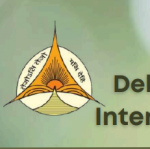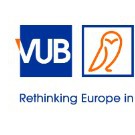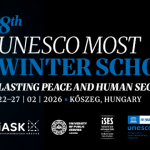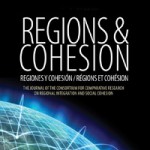Tenth Anniversary Special Edition of Regions and Cohesion - Re-thinking Regions: a Citizen Perspective - Out Now
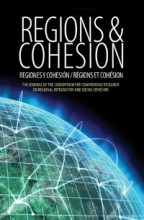
The tenth anniversary special edition of Regions and Cohesion, “Re-thinking: a citizen perspective”, is out now, featuring think pieces from a number of UNU-CRIS academics and co-edited by UNU-CRIS Director a.i. Philippe De Lombaerde.
More information can be found at:
https://www.berghahnjournals.com/view/journals/regions-and-cohesion/10/3...
Contributions from UNU-CRIS include:
The psychology of regions: A Vygotskian perspective
Luk Van Langenhove
There exists today a large consensus among scholars of different disciplines that regions are more than a geographical concept and that they are socially constructed. This implies that somehow people must play a role in the emergence of a region as an entity of governance and as a source of identity. But the relation between regions and the socio-psychological processes that constitute them remains unclear. This article aims to clarify what the social construction process of a region means and what kind of psychological processes play a role in it as well how such social construction relates with how regions contribute to people’s identity formation. For this theoretical exercise, use will be made of the so-called Vygotsky scheme that distinguishes between four different conversational spaces.
Rethinking “new regionalisms” out of Africa 2020
Timothy M. Shaw and Abigail Kabandula
This article suggests that the quarter of the world’s states that are African can yet contribute to new “developmental” regionalisms in theory and practice, as the North enters a period of ambivalence about, if not retreat from, positive global engagement. This article builds on the pioneering analysis of Björn Hettne with Inotai on new regionalism and the related contributions out of contemporary “development” studies by Jan Nederveen Pieterse on East-South relations and Oliver Stuenkel on a non-Western world.
EU Strategy for the Baltic Sea Region: A new space for a study of novel forms of diplomacy
Zane Šime
The evolution of the EU multilevel governance unleashes new dynamics that hold a potential to contribute to the theory-building of paradiplomacy and honing of a more nuanced understanding what is to be understood with science diplomacy in the EU specific setting. When evaluated in the context of a broader body of literature on paradiplomacy and science diplomacy, new empirical examples from the EU macroregional governance level, such as the discussed role of the Free and Hanseatic City of Hamburg in coordinating a flagship of the EU Strategy for the Baltic Sea Region called “Baltic Science Network,” should be treated with caution in terms of paying full attention to the distinct institutional environment in which a sub-national actor operates and pursues its initiatives.
The Ukrainian divide: The power of historical narratives, imagined communities, and collective memories
Alina Penkala, Ilse Derluyn, and Ine Lietaert
A decade ago, Regions & Cohesion started with an editorial article by Harlan Koff and Carmen Maganda, who proposed launching “a multilingual (English, French, and Spanish) and interdisciplinary forum for the discussion of the human and environmental impacts of regional integration as well as governance processes.”
About Regions and Cohesion:
Regions & Cohesion is the journal of the Consortium for Comparative Research on Regional Integration and Social Cohesion-Social Elevation (RISC-RISE), a cross-regional, interdisciplinary, and multilingual network of socially conscious and prestigious research institutes in Europe, North America, South America, Africa, and Asia.
The journal publishes peer-reviewed articles on the human and environmental impacts of regional integration processes. It disseminates conceptual and empirical research (articles) and normative analysis (Leadership Forum) of topics related to human and environmental security, social cohesion, and governance.
The journal facilitates a cross-regional intellectual dialogue on timely political, social and environmental issues from a regional perspective and is especially committed to publishing scholarship from emerging/transition countries and developing states. Its multilingual (English, Spanish and French) and interdisciplinary character contribute to the journal’s originality in providing an inclusive forum for scholars and practitioners in different world regions to engage in important international discussions related to sustainable human development. This dialogue reflects RISC’s mission of connecting scholars and practitioners from different world regions who otherwise would not have the opportunity to interact.

